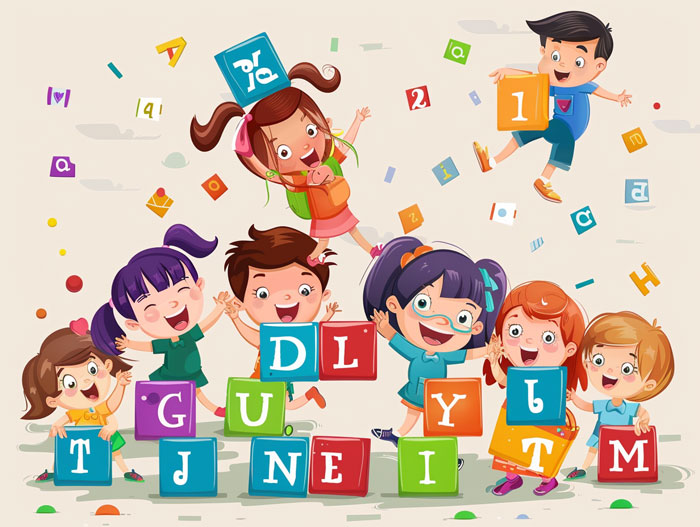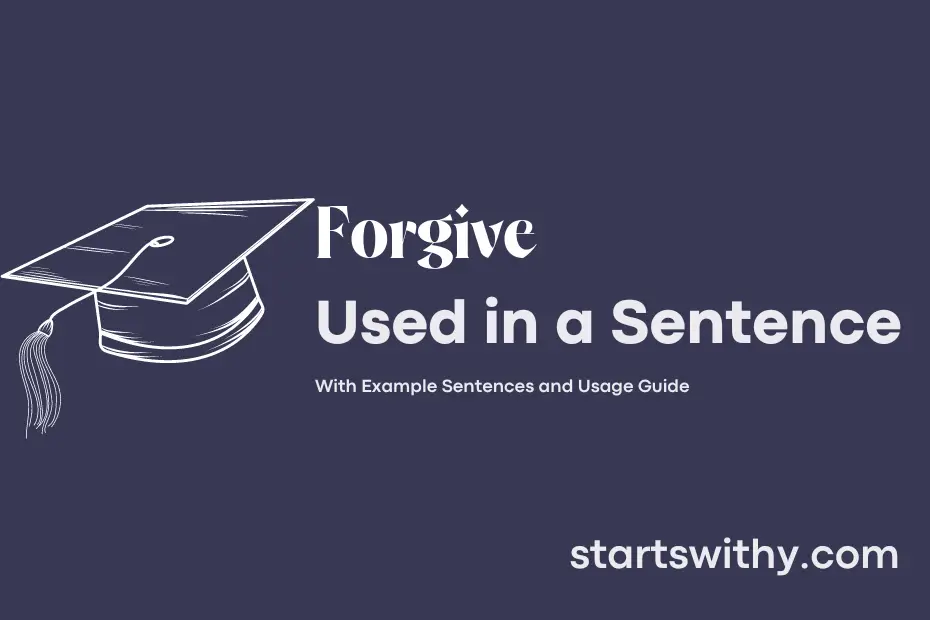Have you ever found it challenging to forgive someone for their actions? Forgiveness is the act of letting go of resentment or anger towards another person, allowing yourself to move forward and release negative emotions.
When we forgive, we give ourselves the gift of peace and liberation from the burden of holding onto grudges. It is a powerful tool that can strengthen relationships and promote emotional well-being.
7 Examples Of Forgive Used In a Sentence For Kids
- Forgive others when they make mistakes.
- Remember to forgive your friends when they say sorry.
- Let’s all learn to forgive and play together.
- It is important to forgive and forget.
- We should always be ready to forgive each other.
- Saying sorry helps us to forgive easily.
- If someone hurts you, show them how to forgive.

14 Sentences with Forgive Examples
- Forgive yourself for not scoring as high as you wanted on that exam – it’s just one setback in your academic journey.
- It’s important to forgive your classmates for not pulling their weight in group projects – try to communicate effectively and divide the tasks equally.
- Remember to forgive your professor if they make a mistake in class – they’re human too.
- Don’t hesitate to forgive your friend for letting you down on plans – we all have busy schedules to juggle.
- It’s crucial to forgive yourself for procrastinating on studying – learn from this experience and make a study schedule for the future.
- Have the humility to forgive your parents for not understanding your perspective on a certain issue – communicate openly with them.
- Forgive your roommate for accidentally damaging your belongings – it’s important to maintain a harmonious living environment.
- Don’t forget to forgive yourself for missing an important deadline – use it as a learning experience to manage your time better.
- It’s essential to forgive your lab partner for making a mistake during an experiment – cooperation and support are key in academic settings.
- Make sure to forgive yourself for feeling overwhelmed with coursework – take a deep breath, seek help, and tackle one task at a time.
- You should forgive your friend for copying your assignment – address the issue calmly and discuss the importance of academic integrity.
- Never hesitate to forgive your professor for giving you a lower grade than expected – seek feedback and work towards improvement.
- Practice self-compassion and forgive yourself for struggling with a difficult subject – seek additional resources and support for better understanding.
- Remember to forgive your classmate for spreading rumors about you – address the situation maturely and seek a resolution.

How To Use Forgive in Sentences?
Forgive means to stop feeling angry or resentful towards someone for an offense, flaw, or mistake. When using forgive in a sentence, it is essential to consider the context of the situation. Here is a helpful guide on how to use forgive effectively:
- Identify the Subject: Start your sentence by identifying the person or group that you are referring to, who is either forgiving or being forgiven.
- Use the Word: Place forgive in the appropriate part of the sentence depending on the subject and the tense of the sentence. For example, “I forgive you for your mistake” or “She finds it hard to forgive him for his actions.”
- Include the Reason: If necessary, provide a brief explanation or reason for forgiveness in your sentence to give more context. This can help clarify the situation and the emotions involved.
- Maintain Clarity: Make sure the sentence is clear and easy to understand. Avoid using complex sentence structures or vocabulary that might confuse the reader.
- Reflect on Emotions: Consider the emotions and feelings attached to the act of forgiveness when constructing your sentence. This will help convey the message more effectively.

Overall, practice using forgive in different contexts to become more comfortable with its usage. Remember that forgiveness is a powerful and positive action that can lead to healing and reconciliation in relationships.
Conclusion
Forgiveness is a powerful tool that can bring peace and healing to both the forgiver and the forgiven. When we choose to forgive, we release ourselves from the burden of holding onto anger and resentment. This act of letting go can lead to a sense of freedom and emotional well-being.
Forgiveness allows us to move forward and build stronger, more meaningful relationships. It opens the door to reconciliation and restores trust and harmony. By choosing to forgive, we demonstrate compassion and empathy, fostering a positive environment for personal growth and connection. Ultimately, forgiveness is a choice that empowers us to break free from the cycle of pain and bring about healing and renewal.



